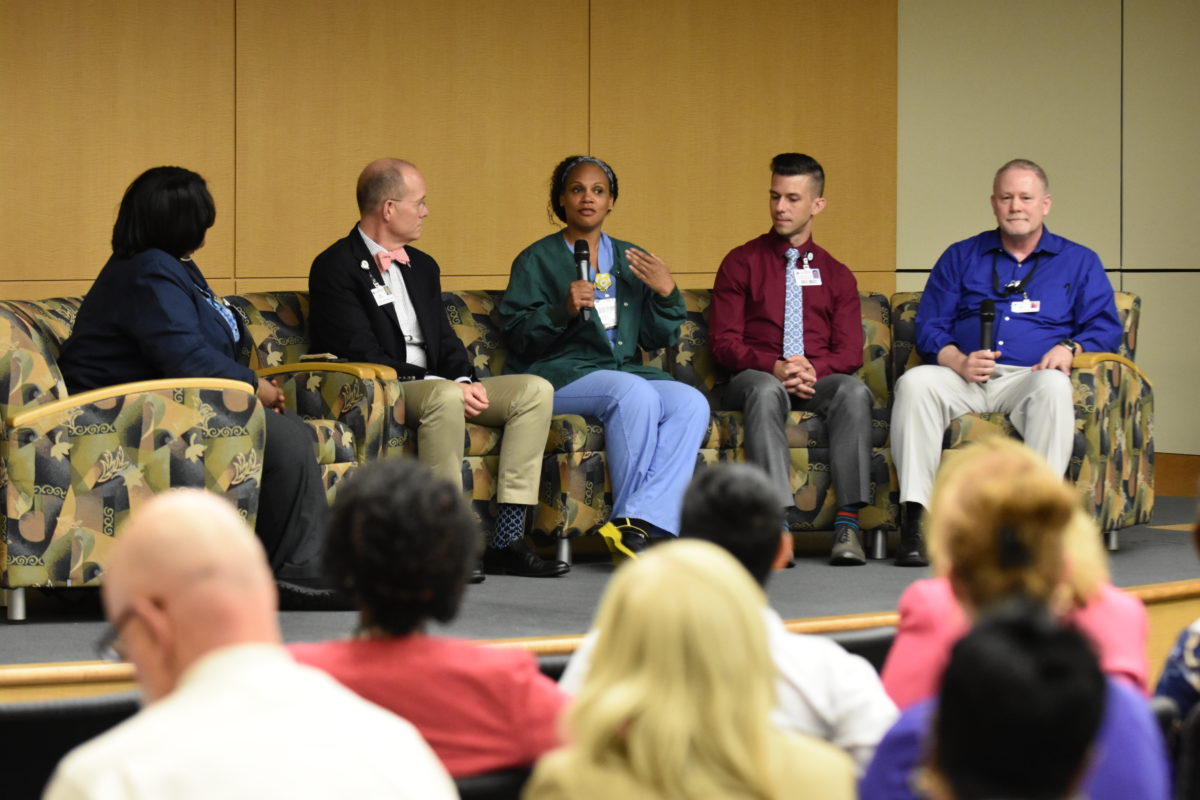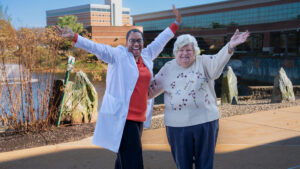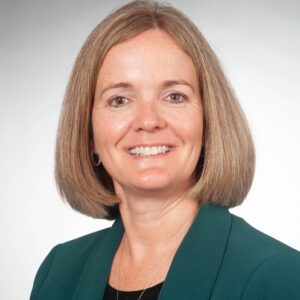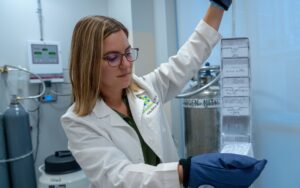Coming out as lesbian, gay, bisexual or transgender to family, friends and colleagues is an emotionally charged life event.
At Christiana Care, colleagues shared their personal stories in a panel discussion in observance of LGBT Pride Month, hosted by the Multicultural Heritage Committee.
The event on June 30 at the John H. Ammon Medical Education Center also marked the premiere of the video “It Gets Better,” produced to support and inspire LGBT youth. The video, which features insights from Christiana Care colleagues, will be distributed by the United Way to Gay/Straight Alliances in Delaware public schools.
“This work is so important here at Christiana Care and in our community,” said Bettina Tweardy Riveros, Esq., chief health equity officer. “The message is one of courage and of hope and shows that things can actually get better.”
Dana Beckton, director, Diversity and Inclusion, noted that LGBT youth are four times more likely than their straight peers to attempt suicide.
“Given the events that have happened in Orlando, coming out LGBT is a difficult decision that folks have to make,” she said.
Panelists said that before came out they often felt lonely and depressed, and some were bullied at school.
It wasn’t easy sharing their sexual orientation with relatives and, in some cases, spouses. But in the end, they felt free and happy. Often, parents and former spouses became their champions.
Paul Archer, coding coordinator, Health Information Management, came out in 1996 to his father, a retired Episcopal priest. While his father was accepting, Archer was ostracized by his brother.
Still, he has no regrets about acknowledging his authentic self.
“When you know the value of yourself, the rest of it goes away,” Archer said. “You can stand tall.”
Sandra Medinilla, MD, MPH, came out to her husband, who offered his immediate support. Today, Dr. Medinilla is remarried. She and her wife recently adopted twins.
“The reason I am out at work is because it doesn’t make a difference,” she said. “Love is love is love.”
Tomika Reid, a surgical technologist, was married with two small children when she shared her sexual orientation with her family 25 years ago.
“I couldn’t keep up with the lies any more,” she said. “My aunt, who is very religious, told me I needed to be happy.”
Her son was angry but eventually became close friends with Reid’s girlfriend. Her mother was not supportive, although their relationship has improved over the years.
“It was all taboo to her. But she has gotten better,” she said.
Justin Glasgow, M.D., came out when he was in college to a community of friends. He believes it’s important not to downplay the difficulty of the experience.
“Be a realistic reflection. Everyone here had at least one negative experience during the coming-out process,” he said.
In discussing ways to support LGBT colleagues, Rev. Timothy Rodden, MDiv, MA, BCC, FACHE, director, Pastoral Services, encouraged coworkers to be proactively supportive.
“When there are adverse news events, take the opportunity to bring up the suffering of gay people,” he said. “Make sure there are adequate support systems in place when you come out. Let people know that we are safe harbors.”
For the past five years, Christiana Hospital and Wilmington Hospital have both been recognized as a Leader in LGBT Healthcare Equality by the Human Rights Campaign (HRC) Foundation, the educational arm of the country’s largest lesbian, gay, bisexual and transgender civil rights organization.
The honor is given to institutions that meet LGBT-inclusive benchmarks that are part of the Healthcare Equality Index (HEI), the HRC Foundation’s survey that encourages equal care for LGBT individuals by evaluating inclusive policies and practices related to LGBT patients, visitors and employees.



